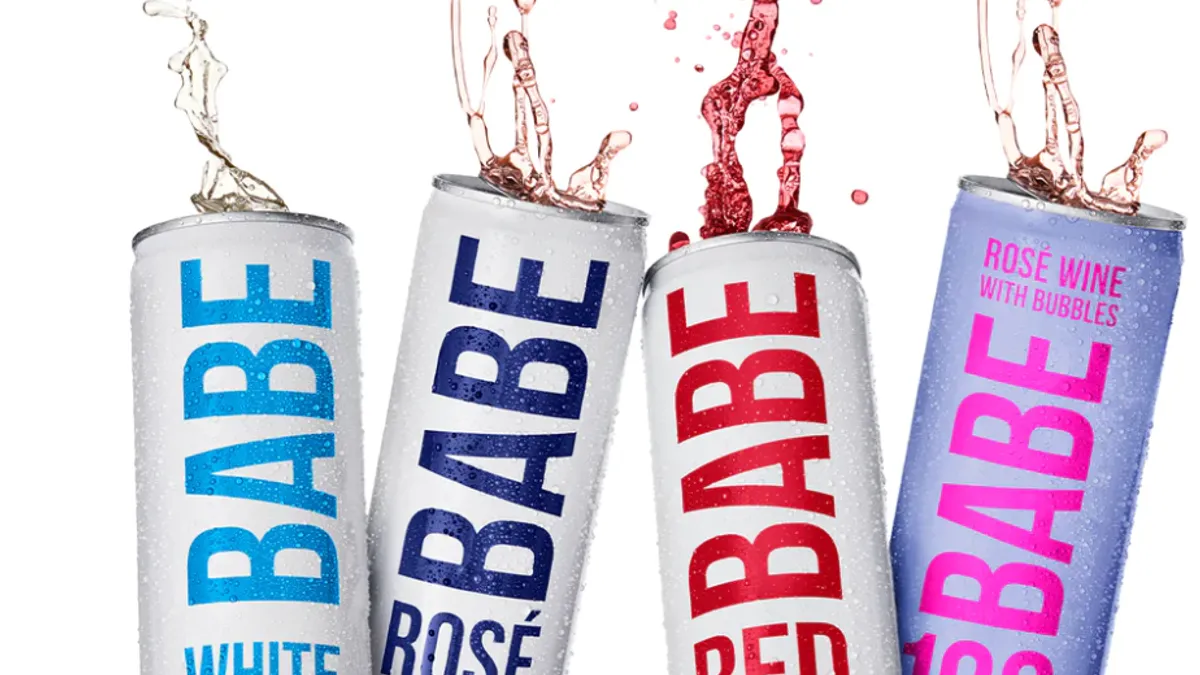Dive Brief:
- AB InBev is discontinuing its Babe wine and Hiball energy brands this year to “better focus and simplify for growth,” the company said in a letter to its wholesalers.
- The alcohol giant said it is focusing on its so-called “Mega Brands” while supporting “choiceful innovations” in promising smaller offerings.
- AB InBev is the latest company in the food and beverage space to cease production of some of its offerings, or scale back others, to prioritize faster-growing items within its portfolio.
Dive Insight:
AB InBev’s portfolio includes a recognizable roster of well-known alcohol brands including Budweiser, Michelob Ultra and Bud Light. While the company has moved aggressively to innovate these products through new flavors and position them in trendy categories like no- or low-alcohol and hard seltzer, it also has looked outside its portfolio for growth.
In recent years it has purchased several craft breweries, Hoop Tea and canned cocktail brand Cutwater Spirits. Similar to its U.S. competitor Molson Coors, however, not all of the bets have worked out.
The announcement by AB InBev’s Anheuser-Busch division to wind down Babe and Hiball indicates the brands were not growing fast enough at the company, or within their respective categories, to justify further investment. Rather than spend more money, AB InBev is choosing to cease production and put its dollars behind its large brands and more promising smaller items.
AB InBev purchased the rest of Babe Wine that it didn’t already own through its ZX Ventures affiliate in 2019. Hiball Energy, a maker of organic energy drinks, was acquired two years earlier.
“As we take a more focused view on our portfolio assortment, we are prioritizing investments and execution behind key brands that will drive long-term growth and create value,” the company said in its letter to wholesalers. “In 2023, we will continue to focus the Mega Brand portfolio, while building relationships with newer partners to further drive category growth and meet consumers where they are.”
This strategy has been employed by large food and beverage companies for years. More recently, several CPG businesses have stepped up reviewing their portfolios amid supply chain challenges and escalating inflation as they look to streamline production and improve margins.
Coca-Cola has sold or ended production of Zico coconut water, Tab soda and Odwalla juice to focus on more profitable, faster-growing products. Last year, Nestlé sold its Chameleon Organic Coffee brand to Systm Foods, a food and beverage brand platform. And Danone is exploring strategic options for its organic dairy business in the U.S. that includes brands such as Horizon Organic and Wallaby.

















